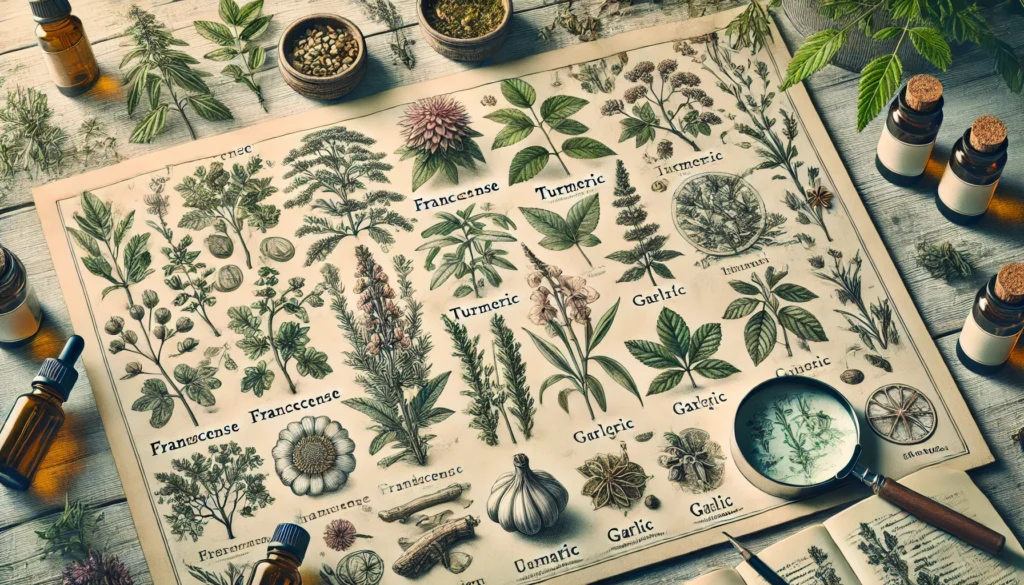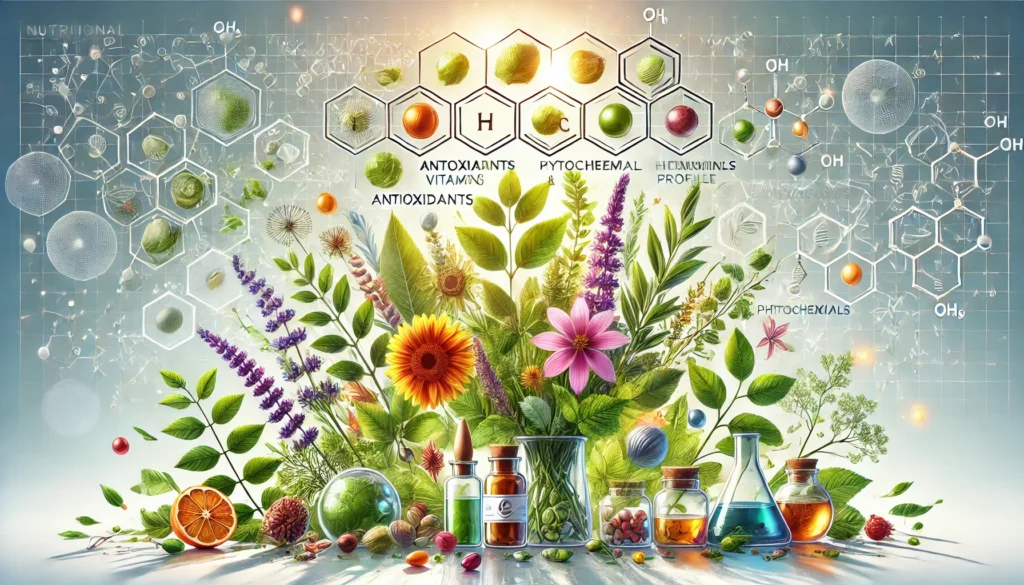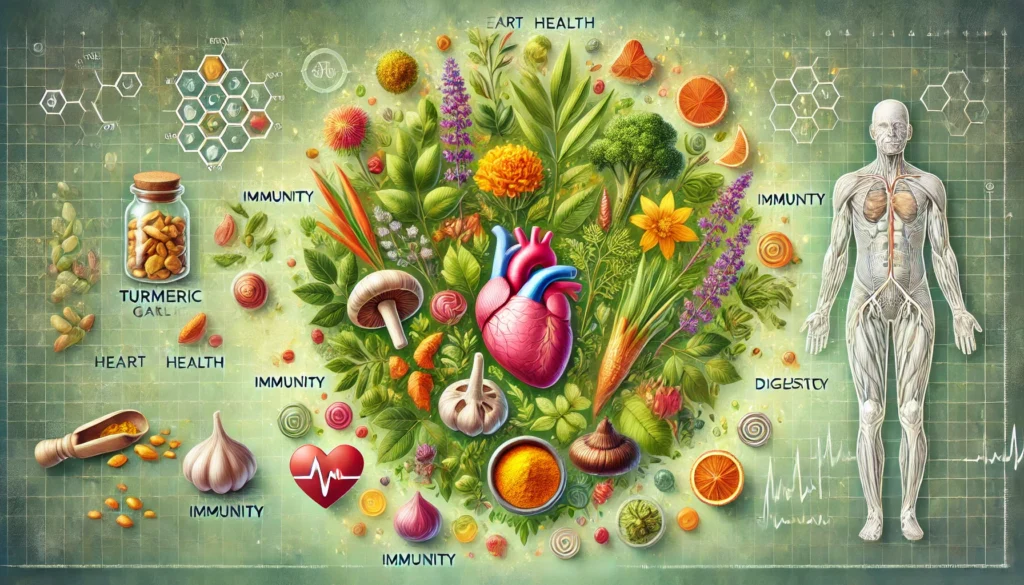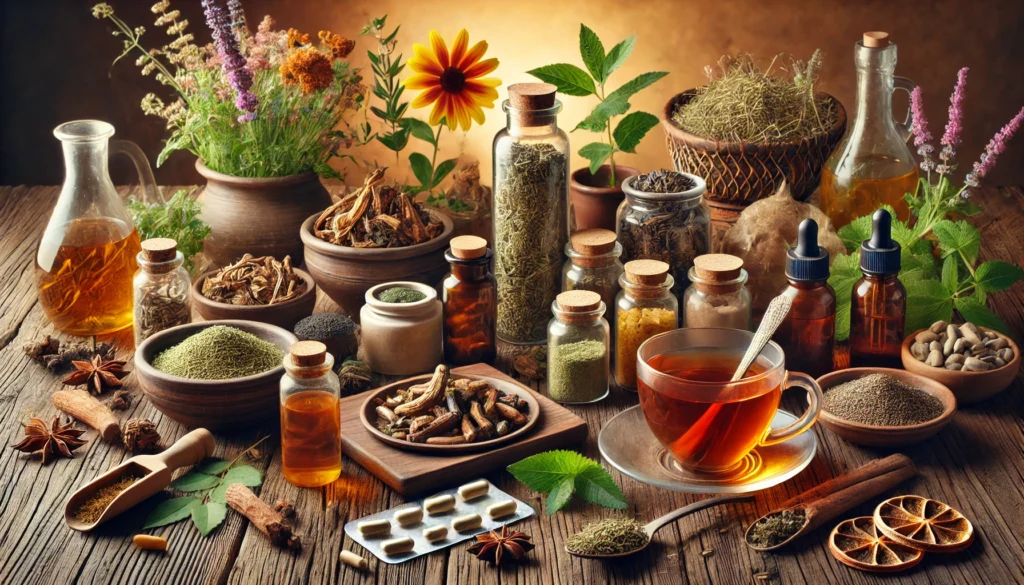Table of Contents
Noni: The Ancient Superfruit for Modern Health
Noni, also known as Morinda citrifolia or Indian mulberry, is a tropical fruit revered for its medicinal properties and health benefits. Though it may be unfamiliar to some, noni has been a staple in Polynesian and Southeast Asian cultures for centuries. Traditionally used as a natural remedy for infections, wounds, and inflammation, noni has recently gained popularity in the Western world for its immune-boosting, antioxidant, and anti-inflammatory properties.
In this blog, we will delve into the history, nutritional profile, health benefits, and practical uses of noni, along with important safety considerations to keep in mind. Whether you are interested in noni for its immune-boosting effects, pain relief, or digestive health benefits, this comprehensive guide will provide everything you need to know about this powerful superfruit.
This site contains affiliate links, and I may receive a commission on purchases made through them. Please see our Affiliate Disclosure for more details.

Historical Significance
Ancient Polynesian Use
Noni fruit has been used for thousands of years in the traditional medicine systems of Polynesia, Southeast Asia, and India. Polynesian voyagers are believed to have introduced noni to various islands in the South Pacific around 2,000 years ago. They brought noni with them on long voyages, as it was considered a sacred and essential plant for survival. Polynesian healers, known as “kahunas,” used noni to treat a variety of ailments, including digestive issues, infections, wounds, and inflammation.
Noni was a key part of daily life for the Polynesians—not only as a medicinal plant but also as a food source. While the fruit itself has a pungent smell and bitter taste, it was consumed during times of famine because of its rich nutritional content. In addition to its medicinal and dietary uses, noni was also used for making dyes and other practical items, showcasing the plant’s versatility in ancient Polynesian culture.
Traditional Medicinal Uses
Throughout the Pacific Islands, noni was traditionally used to address a wide range of health problems. It was applied topically to treat skin infections, sores, and wounds. Noni leaves were also used as a poultice for reducing inflammation, while the fruit was ingested to support digestion and respiratory health. The roots, bark, and leaves of the noni tree were used to make herbal infusions for treating everything from arthritis to bacterial infections.
In Hawaiian culture, noni was known as “the queen of all health plants” due to its extensive use in traditional healing. Noni juice was considered a potent remedy for detoxification, boosting energy, and promoting overall vitality.
Introduction to the Western World
Noni didn’t gain significant attention in the Western world until the 20th century, when researchers began exploring its immune-boosting and antioxidant properties. In the 1990s, noni juice became a popular health drink, particularly for those seeking natural remedies to improve immunity, reduce inflammation, and fight chronic diseases.
Today, noni is sold worldwide in various forms, including juice, supplements, powders, and topical products. Its rise in popularity can be attributed to its impressive range of health benefits and its status as a natural, plant-based remedy.

Botanical Profile
Plant Overview
Noni comes from the Morinda citrifolia tree, a member of the coffee family (Rubiaceae). The tree can grow up to 30 feet tall and is found in tropical regions, particularly in Southeast Asia, India, the Pacific Islands, and Hawaii. It thrives in sandy or rocky coastal areas and is often grown near the shore, where it is exposed to high temperatures and humidity.
The noni tree produces fruit year-round, making it a reliable source of nourishment in the tropics. The fruit itself is oval or oblong in shape, measuring about the size of a small potato. When ripe, the noni fruit turns a pale yellow or white color and has a bumpy texture.
Appearance of Noni Fruit
Noni fruit is most recognizable for its distinctive appearance and strong smell. The skin is thin and covered with small bumps, while the interior is filled with a soft, translucent pulp that contains numerous seeds. As the fruit ripens, it releases a pungent odor that many people compare to the smell of spoiled cheese or rotten fruit. Despite its unappealing smell and taste, noni is highly valued for its health benefits.
Growing Conditions
Noni trees thrive in tropical climates with warm temperatures and high humidity. They are particularly well-suited to coastal regions where they can tolerate saline soils and withstand harsh environmental conditions. Countries like Tahiti, Hawaii, and India are major producers of noni, and the fruit is often harvested from wild trees in these regions.
Because the noni tree is so resilient, it requires minimal care and can grow in poor soil conditions. This makes it a sustainable crop that provides year-round fruit, even in challenging environments.

Nutritional and Phytochemical Profile
Noni is a nutrient-dense fruit that provides a variety of vitamins, minerals, and phytochemicals that support overall health. Despite its small size, noni is packed with nutrients that can help boost the immune system, reduce inflammation, and promote cellular health.
Nutritional Content
Noni is rich in vitamin C, a powerful antioxidant that plays a key role in immune function, skin health, and the body’s ability to heal wounds. It also contains significant amounts of vitamin A, which supports vision, skin health, and immune response.
In addition to these vitamins, noni provides:
- Potassium: An essential mineral that helps regulate blood pressure and support heart health.
- Iron: Important for maintaining healthy blood cells and preventing anemia.
- Calcium: Crucial for maintaining strong bones and teeth.
- Magnesium: Supports muscle and nerve function, as well as energy production.
Phytochemicals
Noni contains several unique phytochemicals that contribute to its wide range of health benefits:
- Scopoletin: This bioactive compound has been shown to possess anti-inflammatory, antioxidant, and immune-modulating properties. It helps regulate blood pressure, reduce inflammation, and improve circulation.
- Anthraquinones: These compounds are known for their antimicrobial and anticancer effects. They help inhibit the growth of bacteria and may prevent the development of tumors.
- Flavonoids: Noni is a rich source of flavonoids, which are plant-based antioxidants that protect cells from oxidative stress and reduce the risk of chronic diseases like heart disease and cancer.
- Polysaccharides: Noni contains polysaccharides that support immune function by enhancing the activity of white blood cells and promoting the body’s ability to fight infections.

Health Benefits of Noni
Noni has been used for centuries as a natural remedy for a wide range of health conditions. Modern research continues to explore the many ways noni can benefit health, particularly for boosting the immune system, reducing inflammation, and supporting heart health. Here are some of the most well-known health benefits of noni:
Boosts Immune System
One of noni’s most notable benefits is its ability to enhance the immune system. Thanks to its high levels of vitamin C, polysaccharides, and scopoletin, noni helps activate white blood cells and improves the body’s natural defenses against infections. This makes noni particularly useful during cold and flu season or for those with weakened immune systems.
Research has shown that noni juice can increase the activity of macrophages and lymphocytes, which are key components of the immune system responsible for identifying and destroying harmful pathogens. By strengthening the immune system, noni helps protect the body from illness and promotes faster recovery from infections.
Anti-inflammatory Properties
Noni is well-known for its anti-inflammatory effects, which make it a valuable natural remedy for conditions like arthritis, digestive disorders, and chronic pain. The compounds scopoletin and anthraquinones work together to reduce inflammation in the body, making noni effective in treating both acute and chronic inflammatory conditions.
For individuals suffering from conditions like rheumatoid arthritis or inflammatory bowel disease (IBD), noni may help alleviate symptoms by reducing inflammation in the joints and digestive tract.
Antioxidant Power
Noni’s high antioxidant content makes it a powerful tool in protecting the body from oxidative stress. Free radicals are unstable molecules that can damage cells and contribute to the development of chronic diseases like cancer, heart disease, and diabetes. By neutralizing these free radicals, the antioxidants in noni help prevent cell damage and promote overall health.
In addition to vitamin C and vitamin A, noni contains flavonoids and other antioxidants that support cellular health and protect against premature aging.
Supports Heart Health
Noni has been shown to have several heart-protective effects, particularly in improving circulation, lowering blood pressure, and reducing cholesterol levels. The scopoletin in noni helps dilate blood vessels, improving blood flow and reducing the risk of hypertension (high blood pressure).
Noni juice has also been found to reduce levels of LDL (bad) cholesterol while increasing HDL (good) cholesterol, promoting better heart health. By supporting healthy blood pressure and cholesterol levels, noni helps reduce the risk of heart disease, stroke, and other cardiovascular issues.
Pain Relief
One of the traditional uses of noni is as a natural pain reliever. Noni’s anti-inflammatory and analgesic properties make it effective in reducing pain associated with conditions like arthritis, migraines, and muscle pain. Polynesian healers traditionally used noni juice and poultices made from noni leaves to relieve joint and muscle
pain, and modern research supports these claims.
Studies have shown that noni’s compounds work by inhibiting pain signals in the body, making it a useful natural alternative to over-the-counter pain medications.
Digestive Health
Noni is often used to support digestive health and relieve common digestive issues like bloating, gas, and indigestion. Its polysaccharides help promote the growth of beneficial gut bacteria, improving gut health and enhancing digestion.
In traditional medicine, noni was used to treat constipation and other gastrointestinal issues. The fiber content in noni also supports regular bowel movements, preventing constipation and promoting a healthy digestive system.
Cancer Prevention
While more research is needed, early studies suggest that noni may have potential anticancer effects. The anthraquinones and flavonoids in noni have been shown to inhibit the growth of cancer cells and reduce tumor formation in lab studies.
Some studies have found that noni juice can slow the progression of certain types of cancer by enhancing the immune system and promoting the body’s ability to fight cancer cells. However, more clinical research is needed to fully understand noni’s role in cancer prevention and treatment.
Skin Health
Noni’s anti-inflammatory, antibacterial, and antioxidant properties make it a popular ingredient in skincare products. It is often used to treat acne, eczema, and other skin conditions that involve inflammation and bacterial infections. The antioxidants in noni also help improve skin elasticity, reduce wrinkles, and promote a more youthful complexion.
For individuals dealing with acne or other inflammatory skin conditions, applying noni juice or using noni-based creams may help soothe the skin and reduce breakouts.
Energy and Vitality
In Polynesian culture, noni was traditionally used as a tonic to improve stamina, reduce fatigue, and promote overall vitality. Noni’s ability to support the immune system, reduce inflammation, and improve circulation contributes to higher energy levels and better overall health.
Noni juice is often consumed by athletes and individuals looking to boost their energy naturally. The fruit’s nutrient-rich profile helps fight fatigue and enhance physical performance.
Detoxification
Noni has long been used to support the body’s natural detoxification processes, particularly for the liver. The antioxidants and polysaccharides in noni help protect the liver from oxidative damage and promote the elimination of toxins from the body. By improving circulation and supporting liver function, noni helps cleanse the body and maintain overall health.

Methods of Consumption
There are several ways to incorporate noni into your diet or wellness routine, depending on your preferences and health goals. Here are some of the most popular methods:
Noni Juice
Noni juice is the most common way to consume noni, and it’s available in many health food stores and online retailers. Typically sold in bottled form, noni juice can be consumed on its own or mixed into smoothies or other beverages. It’s recommended to start with a small amount, as noni juice has a strong flavor and smell.
For immune support and general wellness, the usual dosage is 30–90 mL of noni juice per day. Many people prefer to drink it in the morning as part of their daily health routine.
Noni Capsules and Supplements
For those who prefer a more convenient way to take noni, capsules and supplements are widely available. These supplements typically contain noni extract or powdered noni fruit and offer a standardized dose of the active compounds found in noni. Capsules are an easy way to incorporate noni into your daily routine, especially if you don’t enjoy the taste of the juice.
Noni Powder
Noni powder is made by drying the fruit and grinding it into a fine powder. It can be added to smoothies, teas, or even sprinkled into food. Noni powder offers a concentrated dose of noni’s health benefits and is a great option for those looking to boost their daily antioxidant intake.
Topical Use of Noni
Noni is also available in topical creams, oils, and ointments, which are commonly used to treat skin conditions and reduce inflammation. These products can be applied directly to the skin to soothe irritation, reduce acne, and promote wound healing. Noni-based skincare products are popular for their ability to improve skin texture and reduce signs of aging.

Cautionary Advice
While noni offers many health benefits, it’s important to be aware of potential side effects and interactions with medications.
Potential Side Effects
Some people may experience digestive upset after consuming noni juice, especially in large amounts. Common side effects include nausea, diarrhea, and bloating. It’s best to start with a small dose and increase gradually to avoid these issues.
Medication Interactions
Noni may interact with certain medications, particularly blood pressure medications and blood thinners. If you are taking medication for high blood pressure or blood clotting disorders, consult your healthcare provider before adding noni to your routine.
High Potassium Levels
Noni is high in potassium, which can be beneficial for heart health. However, individuals with kidney disease or those who need to limit their potassium intake should be cautious when consuming noni, as it may raise potassium levels to unsafe levels.
Safe Dosage
The recommended daily intake of noni juice is typically between 30–90 mL. For noni capsules or powder, follow the dosage instructions on the product label. If you are using noni topically, apply a small amount to the affected area as needed.
Pregnancy and Nursing
There is limited research on the safety of noni during pregnancy and breastfeeding. To err on the side of caution, it’s best for pregnant or nursing women to consult with a healthcare provider before consuming noni products.

Conclusion
Noni is a powerful and versatile superfruit that has been used for centuries to promote health and wellness. From boosting the immune system and reducing inflammation to improving skin health and supporting heart function, noni offers a wide range of benefits that make it a valuable addition to any health routine.
Whether you prefer to drink noni juice, take capsules, or apply it topically, this ancient remedy has something to offer everyone. As with any supplement, it’s important to use noni responsibly and consult with a healthcare provider if you have any medical conditions or take medications.
Explore the many ways to incorporate noni into your daily life and experience the natural health benefits of this remarkable fruit.
